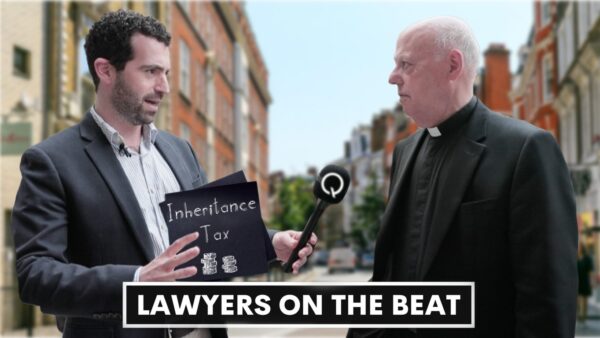Latest Posts

Immigration Guide for Hong Kong Residents Relocating to the UK
The UK immigration system has undergone recent changes, and it is important to stay informed to ensure compliance and maintain your property ownership rights. This guide will provide you with a brief overview of the key visa options for individuals from Hong Kong, to consider.

| SHORT TERM | LONG TERM |
| Currently Hong Kongers do not require a visa to enter the UK for short-term stays for purposes such as tourism, leisure or business. However, the UK electronic travel authorisation (ETA) for Hong Kong travellers will become a mandatory requirement in late 2024, when the official launch is expected. | Hong Kongers who plan on visiting the UK for the long term or with the intention to settle in the UK will need a visa specific to their needs.The well-known BN(O) visa route is clearly very attractive but there are still many other immigration options available for Hong Kongers who are not eligible or who do not wish to apply under the BN(O) visa route. |
Is There A ‘6-Month In 12 Months’ (Or 180 Day A Year) Rules?
This is the most common immigration myth, and you may be pleased to know that there is actually no such rule. There is no specified maximum period in the immigration rules that an individual can spend in the UK as long as each visit does not exceed the maximum period for that visit, normally 6 months. However, if it is clear from your travel history that you are seeking to remain in the UK for extended periods or making the UK your home, the entry to the UK will be refused. This is because longer periods of stay in the UK comes with a rebuttable presumption of ‘non-genuine visit’. Nevertheless, spending over 183 days in the UK in any tax year may trigger UK tax residency.
Are You An Innovative Entrepreneur?
Innovator Founder visa opened in April 2023, designed for individuals who wish to set up and run a UK-based enterprise, without the need to show any initial capital to invest in the business and allowing you to take employment alongside running your own business. A key requirement is that you must be endorsed by a Home Office approved endorsing body who will then assess your business in the aspects of innovation, viability, and scalability. Therefore, a meticulously researched and well-structured business plan is crucial for the application and we, Quastels LLP, has a track record of securing endorsements for game-changing ventures, like a recent beverage company leveraging the metaverse and NFT tech.
Do You Have A Job Offer From A UK Business Partner Or Work Closely With A UK-Based Business Partner?
The UK’s main work visa route is called Skilled Worker visa, which is under a sponsorship system. This means you cannot simply apply for this visa unaided and securing a job offer from a UK business is a prerequisite for this visa route.There are currently over 61,153 licence holders in the UK but you may not be aware that any UK employer who is a legitimate business trading in the UK is eligible to apply for a sponsor licence, including a one-person business. Therefore, although the Register of licenced sponsors list is an extremely helpful tool to look for visa sponsorship, don’t limit yourself to any possibility.
Is Your Company Looking To Expand To The UK?
Global Business Mobility visa provides five pathways for overseas firms to establish a UK footprint or transfer staff to the UK. If you own or are employed by an overseas company, this visa allows you to enter and work in the UK as a representative of your company, then potentially be sponsored by the UK establishment and switch into the above-mentioned Skilled Worker route.
Are You A Talented And Promising Individual?
Global Talent visa is one of the most interesting types of visas as it covers a wide range of industries such as science, research, engineering, humanities, social science, medicine, architecture, digital technology, arts and culture, fashion, film, and television.
The most complex part of the process is to get endorsed by a Home Office approved endorsing body who will assess your career history including your international standing, the significance of your work and the impact of your activity in a company or as an individual. Each endorsing body has very different criteria and so it is crucial that you thoroughly read and understand their specific assessment criteria.
Are You Aged 18 To 30?
Youth Mobility Scheme visa is designed to enable people aged 18-30 to live and work in the UK for two years. It is straightforward to apply for, however, you should be aware that there is a cap of 1,000 places for Hong Konger and you must be selected in the ballot, which is typically opened in January and July each year.
Are You A Graduate Of Chinese University Of Hong Kong Or University Of Hong Kong In The Last 5 Years?
High Potential Individual visa allows recent graduates of a top global university to live and work in the UK without any sponsorship for two years (or 3 years for PhD or other doctoral qualification), which means you will not be tied to a particular job, you can be employed or self-employed.
Are You Looking To Join An Internship Programme In The UK?
Government Authorised Exchange visa is for individuals who want to come to the UK for a short time for work experience for up to 12 months or to do training, research or an Overseas Government Language Programme for up to 24 months.
Finally…
Owning to the UK’s colonial history with Hong Kong, you may want to explore whether you have a claim to British citizenship under the British Nationality (Hong Kong) Act 1990.
For example, if one of your parents were granted British dependent territories citizenship by the Hong Kong government between January 1983 and June 1997, amongst other ways to potentially qualify through a British parent, ancestor or colonial connection.
Conclusion
Changes to the Immigration Rules in recent years have created many new opportunities for people to relocate to the UK.
However, navigating the UK visa system can be complex and the Immigration Rules contain strict requirements.
Consulting with an experienced immigration lawyer at Quastels LLP is crucial to ensure you understand the most appropriate visa options and comply with all legal requirements. Our team is here to guide you through the process and provide tailored advice based on your unique circumstances.
To discuss any of the points raised in this article, please contact Cheryl Ma or fill in the form below.

Death and Duties | The Most Unwelcome of Inevitables
Inheritance tax (IHT) has long been a polarising subject in the United Kingdom. Over the years, IHT has been the subject of fierce debate and faced scrutiny, on all ends of the political spectrum, for both its impact on wealth distribution and the burden it places on heirs.
And yet, despite being levied on a very small portion of the population and generating relatively little in tax revenue, this tax is supposedly considered ‘unfair’ by half of the taxpaying population of this country. But what is all the fuss about? Perhaps it is our cultural resistance to the discussion of death or we really are, as a nation, so deeply opposed to the concept of a perceived ‘double taxation’.
In this article, we delve into some of the detail and also point you to our recent video in which Ben Rosen canvasses the views of the public on this divisive issue.
The Fundamentals
Inheritance Tax is a tax on the estate of a deceased person, including their property, money, and possessions. It is charged at a rate of 40% on the value of an estate above a specific threshold, known as the ‘nil-rate band’, which currently stands at £325,000. Any assets above this threshold are subject to the tax, although there are various exemptions and reliefs available, such as the spouse exemption, the residential nil-rate band for primary residences and business/agricultural property relief.
The Divisiveness of Division
What are the arguments that cause such division?
Wealth Distribution
Those in favour advocate for its power in redistributing wealth by preventing the concentration of assets within a select few families. By imposing a tax on large estates, they argue that it promotes a fairer society and ensures that the wealthy contribute their share to public finances.
Burden On Heirs
Critics often highlight the emotional and financial burden it places on heirs. Losing a loved one is already a difficult time, and the added stress of navigating Inheritance Tax and dealing with lawyers can be overwhelming. Heirs may need to sell assets, such as family homes or businesses (often with a sentimental connection), to cover the tax bill, leading to concerns about the potential destruction of family legacies.
Tax Planning
Many point to the ability for wealthier families to instruct lawyers and tax advisors to assist in mitigating their exposure to IHT. This has fuelled debates about the fairness of the tax, as critics argue that it disproportionately affects those who are less able to engage in such planning.
Regional Differences
There are significant regional variations in property prices across the UK, particularly given that prices in London and the South East are significantly higher than in other parts of the country. However, the increase in property prices has brought many estates into the scope of IHT for the first time, despite those families not being ‘wealthy’ in the traditional sense, other than through passive wealth expansion through bricks and mortar. This means that families in these regions are more likely to be affected by IHT, leading to concerns about regional disparities.
Some Closing Thoughts
As you will see from this article and the video, the subject to IHT provokes a strong and impassioned reaction in many.
Whatever form it takes, IHT will always remain a polarising issue due to its complex interplay with wealth distribution, the emotional burden on heirs, tax planning strategies, and regional disparities in property values. While some argue that it plays a crucial role in promoting fairness and funding public services, others believe it requires reform to address its shortcomings, and reform is unlikely to lessen the volume of the debate!
For tax and private client advice and services, please contact Ben Rosen via our contact form below.

Saudi Arabia and Football – Alluring Yet Possibly Taxing!
Cristiano Ronaldo at the ripe age of 38 earning £170 million, who could blame him? What has followed, however, is a revolution of sorts, with dozens of top flight footballers in the peak of their careers following suit to Saudi Arabia.
Few British footballers have historically looked beyond the Premier League and yet, in almost an instant, the allure of playing football in foreign leagues has gained real traction, with Saudi Arabia emerging as the number one overseas league this summer owing to its ever-increasing global prominence and substantial salaries on offer. Forever the ones to crash the party, here comes a tax lawyer to sound the alarm. Yes, I am going to say it…the magic words ‘tax-free’ may be more taxing that you initially think.
UK Tax on Worldwide Income
To understand why, let us think about how UK tax generally operates in the context of the world of football. Even though Saudi Arabia does not charge income tax, that doesn’t mean you are totally outside the income tax net. As a starting point, if you are UK resident then you will very likely be subject to UK income tax on your worldwide income. Becoming non-UK resident can, of course, exempt our favourite footballers from UK income tax, but you have to pay close attention to the rules, really adhere to them and keep records of how you are getting on.
Taxing Player Businesses Outside Football
This is not just about employment income. As football aficionados will know, footballers derive their income from several sources, not all of which are employment related ie footballer kicks ball for club and club pays footballer money. Footballers will often generate substantial income from image rights and commercial endorsements.
What if the footballer has a company into which such income is paid and the company is UK incorporated – yes, you guessed it – ongoing exposure to UK tax. Going to Saudi Arabia, even as a non-UK tax resident is not going to eliminate all UK taxes, necessarily. Again, what if a player receives a signing bonus.
This will again come down to timing and the player will almost certainly be taxed on the basis of their UK residence at the time of receipt. So the question is how to address these structures to ensure they work tax efficiently when transfers dealings can happen, practically, overnight!
Our Conclusion
These rules can be tricky, particularly where players return after a complete season but half way through a tax year. Navigating the web of tax rules, as with any internationally mobile high-net worth individual, is essential to avoid any unwelcome surprises from the taxman back home. By keeping advised and well informed, players can rest easy and focus on the game. Who knows how long the bonanza will last, but where there is movement, there will always be tax implications!
For Private Wealth & Tax advice and services, please contact Ben Rosen via our contact form below.